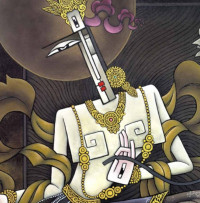Culture & Lifestyle
The pros and cons of coffee consumption
From the traditional Turkish brewing methods to the rise of contemporary trends like ‘dalgona coffee’, the beverage’s versatility contributes to its enduring appeal.
Rukusha Giri
An old Turkish proverb says, “Coffee should be black as hell, strong as death, and sweet as love.” And most coffee lovers would tell you that they do like their coffees strong and dark. Traditionally, Turkish coffee, loved for its rich and distinct flavour, is brewed in a unique pot called a cezve and is made with finely ground coffee beans and water. It is then heated on a stove until it reaches a foamy consistency and is then poured into small cups, often served with a glass of water to cleanse the palate between sips. Although today we usually get our coffee at overpriced cafes or buy instant coffee mixes, the beverage is as loved as ever.
Regular consumption of coffee has been a common practice globally for many years. However, as with any consumable, there are both benefits and drawbacks. According to Dr Roman Karki, a senior scientist with 15 years of experience at the National Agricultural Research Centre (NARC), consuming up to four cups of coffee daily is not detrimental to one’s health. However, exceeding this limit can have harmful effects.
Karki contends that upon waking up, the mind cannot yet function efficiently and that coffee aids in the cognitive process. Additionally, he dismisses the notion of coffee addiction, suggesting that the beverage enables the body to operate more effectively, a sensation the mind finds agreeable. Therefore, in the event of a headache sans coffee, it is the mind’s way of communicating to the body to imbibe the beverage for optimal bodily function.
Although coffee can make us more energetic and productive, it has several drawbacks. The olfactory preference for coffee differs among individuals. The consumption of coffee is often deemed necessary in the morning to stimulate brain function. However, coffee may be more of a cultural phenomenon in contemporary society.
Kritika Ghimire, a journalism student at West Virginia University, developed a newfound interest in coffee consumption during the lockdown following a TikTok trend of making ‘dalgona coffee’. Before that, she didn’t like coffee. However, upon discovering videos of individuals preparing coffee that way, she became intrigued and decided to try it for herself. She now consumes it regularly and has noticed a reduction in her weight due to it.
Different people have different views on coffee, ranging from its staunch defenders to those who are indifferent or even averse to it. Despite awareness of its detrimental effects, some consume it regularly, while others only partake occasionally. However, there is a plethora of unknown factors surrounding coffee that many need to be made aware of. While some individuals prefer their coffee cold, others prefer a hot beverage. It is important to note that hot coffee has more health benefits than cold coffee.
Many coffee myths pervade despite the scientific evidence to the contrary. For instance, some believe that darker roasts contain more caffeine than lighter roasts, but a study by Harvard University has debunked this claim. Additionally, coffee grinds should not be brewed more than once to ensure optimal flavour and caffeine concentration. Surprisingly, lighter roasts have a higher concentration of caffeine. While water is the best option for hydration, coffee can contribute to daily fluid intake goals. Despite its mild diuretic effect, coffee’s total amount of fluid compensates for any fluid loss due to caffeine.
Although it has been a contentious topic for years, numerous studies have shown coffee to positively impact physical and cognitive performance while providing high levels of antioxidants and potential disease-fighting properties. However, as with any substance, moderation is crucial. Excessive coffee consumption can result in adverse side effects, such as insomnia and increased heart rate. But, for most people, a moderate amount of coffee daily can be a delightful and healthful addition to their lifestyle.
The consumption of coffee in small quantities has numerous benefits, including heightened energy levels, weight control, improved athletic performance, and protection against chronic diseases, says Dr Karki. Conversely, it has some drawbacks, such as depression, anxiety and an elevated heart rate. “It is worth noting that Nepali coffee drinkers typically consume filtered coffee, which has been linked to a higher incidence of premature death and may contain compounds that raise LDL or ‘bad’ cholesterol levels,” he adds.
Sandesh Dhakal, a lecturer at Tribhuvan University’s Central Department of Psychology, advocates that people should not rely on coffee to boost their cognitive abilities. According to him, it is imperative to utilise our minds rather than depend on substances like coffee. Coffee, a popular beverage made from roasted coffee beans, is imported in a filtered form in Nepal.
“Despite the country’s conducive topography for coffee bean cultivation, only five percent of the potential has been realised,” states Dr Karki, adding that increased coffee production can have big economic benefits for us.




 14.12°C Kathmandu
14.12°C Kathmandu















